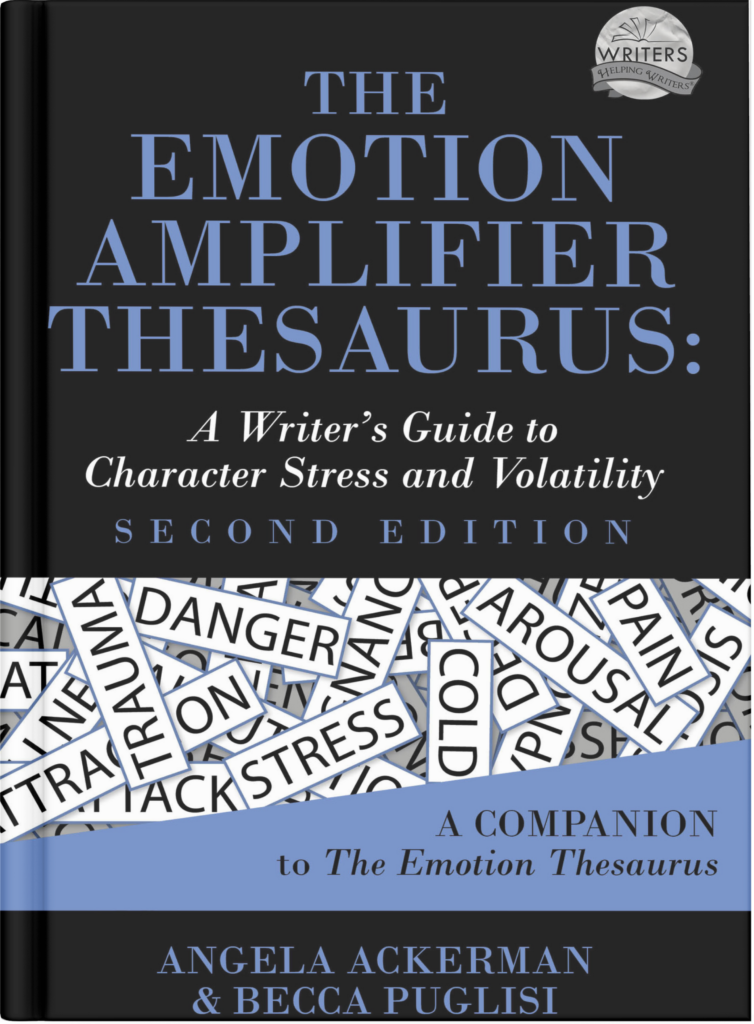Facts are facts: writers throw a lot of rocks at characters. Enemies. Obstacles. Maybe a rabid zombie or two. And we aren’t nice about it, spacing out each projectile, no. We like to line up our cannons and see just how many hits a character can take . . . all in the name of character arc growth.
Whether it’s marriage problems, a car breakdown, or a killer taunting our character by choosing victims they know, at a certain point, our character is going to blow up. And when they do, they’ll set aside rational thought and action. Luckily for us, this almost always turns out bad for them, but good for the story because poor judgment, rash decisions, and risks usually generate conflict.
When characters become volatile, it doesn’t matter if they have a good reason or not, only the mistakes and missteps that often follow. But what does ‘acting on emotion’ look like—is it all road rage and smashed windows? Heck no!
What a Loss of Control Can Look Like
IMPAIRED DECISION-MAKING
When someone is emotionally activated, they aren’t thinking clearly. Feelings are so close to the surface they crowd out everything else. In this state, your character may . . .
- Fail to apply common sense
- Jump to conclusions
- Think irrationally
- Adopt an all-or-nothing mindset
- Be swayed by personal bias
- Refuse to compromise
It never bodes well when a character acts without thinking. All the above can lead to a delicious stew of misjudgments, poor decisions, risk-taking, and mistakes. Hello, conflict!
DAMAGED RELATIONSHIPS
If a character’s emotions are elevated, whatever is causing them to be upset is their focus, not the people around them. Even though they may not intend to hurt anyone, they may do so anyway, especially if your character . . .
- Shuts loved ones out
- Lashes out in frustration
- Questions someone’s motives or loyalty
- Spurns an offer of help
- Makes a false accusation
- Says something hurtful or rude
Things said and done in the heat of the moment usually end with regret as the fallout and misunderstandings will take time to undo. Most likely the character will feel bad for anything unfair said or done, but they will need to take accountability and make amends to undo the damage.

QUESTIONING THEMSELVES
Sometimes a burden comes along that is small on its own but becomes the ‘one thing too much’ when added to everything else. The feeling of being undone by something small can cause self-destructive thoughts and a crisis of faith in themselves. This might be shown through . . .
- Feeling less than
- Heightened vulnerability
- Becoming self-critical
- Tearing themselves down to others
- Making self-destructive choices as punishment
- Giving up
Characters who break under an additional strain that on its own they could handle will have a hard time moving past it because they will be left feeling like they’ve let themselves and everyone else down. They will need to regain perspective and see the entire load they carried, not just the one thing that broke them.
COMPROMISED VALUES
When a character experiences a heightened state of emotion, they may do things they never thought they would do. Maybe others are pressuring them and they give in, or an emotion like frustration, desire, or anger has taken over. In any case, this might cause them to . . .
- Cross a moral line
- Break the law
- Act on their biases
- Give in to violence
- Do what’s easy, not what’s right
Of all the messes that can result from losing control, a character going against their morals or beliefs will be the most difficult thing for them to reconcile, especially if others are hurt by their actions. A person’s beliefs are tied to their identity, so crossing a line may lead to an identity crisis over who they truly are. Depending on what they’ve done, it may be very hard for the character to live with the consequences.

REPUTATIONAL DAMAGE
In many situations, when a character loses control of their emotions, they aren’t alone, so what they say and do are on display. This includes when they . . .
- Spout flawed logic
- Lose their temper
- Forget their filter
- Break under pressure
- Make mistakes
People tend to judge others for their loss of control, meaning many of the people around your character will think less of them, even if they say otherwise. To repair damage to their reputation the character will have to exhibit strong emotional control moving forward. If they do, others will be more likely to view the past lapse as a one-time thing, not a pattern.
MAKING THINGS WORSE
When emotions run high, the character acts without considering the consequences. They may . . .
- Take risks
- Act rashly
- Forego logic
- Fail to spot a danger or mistake
- Endanger others
If a character is too blinded by their need to ‘do something’ to care about anything else, people get hurt, mistakes are made, and complications arise. In the aftermath the character realizes they only have themselves to blame, and now they need to fix whatever they broke. Mistakes are also lessons, however, and to avoid making this one again, the character will be motivated to manage their emotions better in the future.

Characters are unique, and some will be more in control of their emotions than others.
But make no mistake, all characters have a tipping point where they lose control. One strategy is to deploy an emotion amplifier–a state or condition that will activate your character’s emotions and push them toward volatility. Pain, Confinement, Hunger, Competition, Attraction, Scrutiny…these and other amplifiers can weaken or strain a character’s ability to self-regulate their emotions.
Try this list of emotion amplifiers to brainstorm ways to mess with your character’s control and bring their hidden emotion out into the open. And for more on the benefits of emotion amplifiers, check out our companion to The Emotion Thesaurus: The Emotion Amplifier Thesaurus: A Writer’s Guide to Character Stress and Volatility.

Angela Ackerman is a story coach, international speaker, and co-author of the bestselling book, The Emotion Thesaurus: A Writer’s Guide to Character Expression, and its many sequels. Available in nine languages, her guides are sourced by universities, recommended by agents and editors, and are used by novelists, screenwriters, and psychologists around the world. To date, this series has sold over a million copies. Angela is also the co-founder of the popular site Writers Helping Writers®, as well as One Stop for Writers®, a portal to game-changing tools and resources that enable writers to craft powerful fiction. Find her on Facebook, X, and Instagram.















